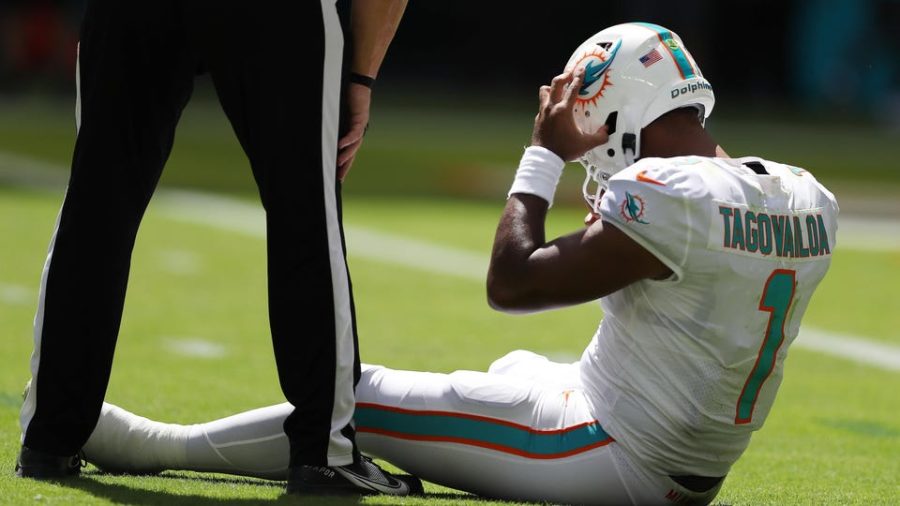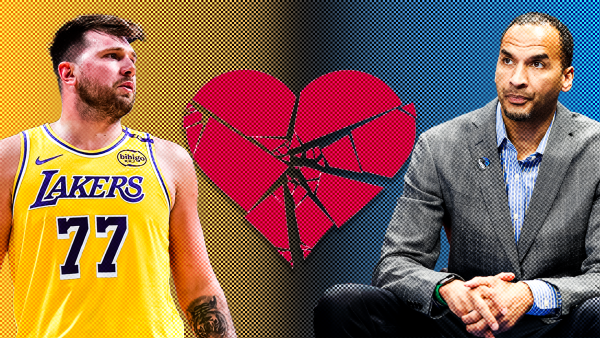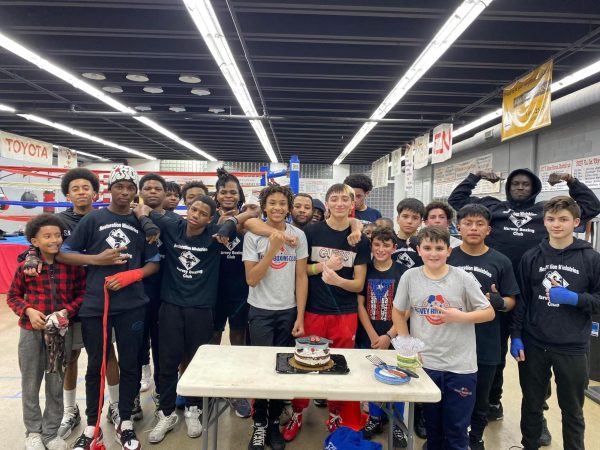Concussion Protocol
Tua Tagovailoa grabbing his head in a game against the Bills
I play football. I watch football. It’s safe to say that I love the game.
When stepping on the field every day, I know the cons of what can happen to me in just one play. I could easily get a fracture or bruise that could sideline me for a few weeks. I could tear my ACL or achilles and be done for the season. There’s always a possibility that I could get a concussion.
Concussions have different levels to them, ranging from mild to severe. Concussions are the biggest concern about NFL players’ health in recent years. Concussions are a concern to me because the effects are dire and can change your life in an instant. I suffered a concussion recently, which is what inspired me to write this column. Concussions are nothing to play about.
Chronic Trauma Encephalopathy (CTE) is a brain condition that’s caused by repeated blows to the head and repeated episodes of concussion. The symptoms are memory problems, personality changes and obviously head injuries.
According to a study done on deceased football players in 2017, 99% of NFL players’ tested brains have had various CTE stages. Former NFL Players diagnosed with CTE include Lance Briggs, Tony Dorsett, Brett Favre, Ken Stabler and Demaryius Thomas.
The more science is revealed about CTE, the less parents will allow kids to play football in the future. This could impact the NFL through a decrease in participation and young talent being discovered. I’m going to explain why the concussion protocol needs to be about more than getting the player back on the field as possible.
Situations like the recent incident surrounding Miami Dolphins quarterback, Tua Tagovailoa, and his multiple concussions prove that the precautions taken to heal concussions are not taken seriously.
The sight sparked conversations on the internet whether the NFL Concussion Protocol is legit or not. Concussion protocol needs to be about more than getting the player back on the field as soon as possible.
As much as players are important to their teams and are beneficial to the team winning, these players are still human beings and need to be treated as such. When an athlete is hurt, everyone’s main objective is to get them on the field as soon as possible no matter what.
In Tagovailoa’s case, passing one concussion test right after suffering a head injury should not speak to his ability to play. Concussion tests should be done daily to make sure that the player is healthy enough and that they stay that way in the following days. Athletes are people too, and have a future to look forward to outside of the NFL.
According to H-F football wide receiver coach Kofi Shuck, “the NFL should have some type of medical team and create a universal policy that each team has to follow, as opposed to each team’s medical staff making their own decisions. Also, look into or invest in medical technologies to better detect the presence or severity of concussion.”
Overall, concussions are the most dangerous thing to an NFL player’s health today. Concussions need to be taken with more care and treated better. NFL players plan to move on outside of the NFL and they want to live their lives, after football, fully healthy.






